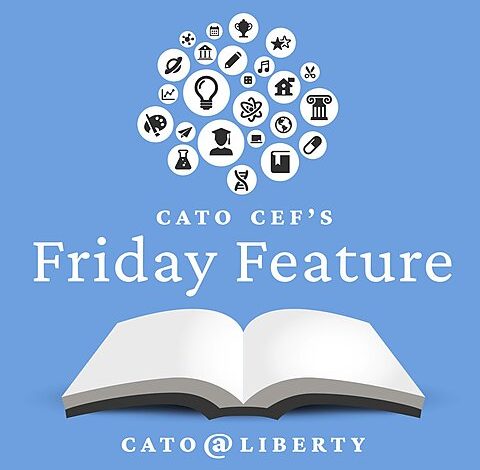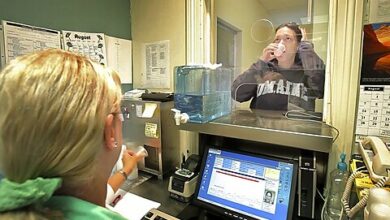Friday Feature: Christian Halls International

Nicholas Ellis wants to tell a different story about what it means to flourish. “What does it mean to win at life if you stay in your local community?” he asks. “If you get educated within your community and you get married and build a family. And you’re part of that local civic enterprise—you’re the mayor of your town or you’re on the school board. I hope that’s not just a Wendell Berry-ian nostalgia. I hope it’s something that we can actually build.”
Nicholas has a bold vision and an ambitious goal: to transform communities by focusing on educational programs that prioritize local flourishing, soul formation, and self-governance. That vision is what inspired Nicholas to found Christian Halls International (CHI), an organization that equips communities to provide their young adults with intellectual, spiritual, and vocational formation. A Christian Hall is a local, independent learning community that pairs in-person tutorials with coursework from partner universities.
Christian Halls International is a unique program, which isn’t surprising considering Nicholas’s unique background. He grew up being homeschooled with his four siblings in Brazil where his parents were missionaries. He moved back to the US for his undergraduate degree, headed to Canada for a master’s degree, and completed his studies in England at the University of Oxford where he received another master’s degree and a PhD.
The Christian Hall design is modeled after the tutorial style of education Nicholas experienced at Oxford. “At our college, Wickliffe Hall, we would prepare kids for the examinations. The University of Oxford is the one that has the examination school and the professors. But virtually no lecturing happens at Oxford,” he says. “It’s not really a lecture-based education. It’s really research, discussion, peer review, small group tutorials, seminar work. But ultimately, you’re preparing for your examinations at the university.”
CHI mimics that design by creating shared partnerships between local, self-governing halls and the partner university. The local entity creating the hall chooses from available coursework and may supplement with local resources to design a program that works for the community. The academic responsibility remains with the university, which provides accreditation, professors, syllabi, and degree-granting.
To create this innovative program, Nicholas says CHI approached about a dozen different Christian universities. “We acquired the rights to all of their degree programs. So we have about 500 degrees now, and about 10,000 classes—everything from dual credit through PhD,” he says. “The local community can only unlock those if they’re willing to go to their elders, go to their retirement community, go to their confident businessmen, and say we need you to get involved in the shaping and forming of our people. So we can support you, but you have to govern the space.”
A community only needs one tutor and three students to create a new hall. After signing up, they’ll have access to the CHI platform that lets them choose which coursework they want to support. CHI started with liberal arts programs similar to Oxford, Great Books, or PPE (politics, philosophy, economics), Nicholas says, “because tons of our families want to go to Hillsdale, but Hillsdale only accepted like 14% of applicants last year. There’s not enough supply in that space.” So they built a program that would allow classical high schools to offer higher education tutorials to their students.
Homeschoolers found out about it and asked CHI to create programs through community colleges. For example, Nicholas says there are three community colleges in the Dallas-Fort Worth area, and there are around 350,000 people in those three community colleges. “Nobody wants that degree. They’re just using that as a two-year transfer program before the transfer to A&M or UT,” says Nicholas. “So I said, I’ve got to go build 40 different micro-campuses across homeschool communities and classical schools and churches. Because of those 350,000 kids, I firmly believe that 10 to 20 percent of them are just conservative kids that want to knock off their gen eds and save some money before they transfer out.” That’s become CHI’s biggest program because in every community he goes to he finds a similar situation.
When it comes to trades, Nicholas says they’re often partnering with local businesses. For example, they have an oil and gas partner in West Texas that needs engineering, drilling, welding, plumbing, and diesel. CHI went to their university partners and explained the program they wanted to implement. If they want, students can do just the certificate in a specific skill—for example, welding. But CHI offers more than just the certificate so they can build a long-term career.
The West Texas program has math tutors and a retired businessman who can teach business structure and entrepreneurship. In that degree program, half is general education requirements so students can receive an associate’s degree. The other half is a hands-on apprenticeship with the oil and gas company, where local trade masters come through and work with the university to certify the students are mastering the skills. By pulling all of those pieces together, CHI is able to offer a bachelor’s of business entrepreneurship with a certificate in welding and deploy that into the local business community.
Christian Halls International is currently preparing to launch a network of teacher colleges to help supply teachers for Christian schools. Nicholas tells schools, “We want to provide a conservative homegrown option so that you don’t have to hire teachers that are not aligned with you, that are not part of your culture, that don’t understand what you’re trying to do.” They’re also designing a Conservatory of the Arts program for an MFA or BFA to encourage flourishing arts programs in local communities.
“Financially, we negotiate a price point for our members so that it’s nondebt, pay-as-you-go subscription style member payments. We’ve never had any students go into debt, they’ve never had to sign a promissory note,” explains Nicholas. “Fifty percent of the tuition goes to the university to pay professors and those kinds of things, 25 percent goes to the local hall to pay their tutors and create a sustainable revenue share model for that local operation. And 25 percent comes back to us at CHI to build local structures, program design, technology. So it’s really a three-way partnership between us, the local halls, and the university vendors.”
In some states, education savings accounts can be used to pay for the Christian Halls program. This makes it even more accessible for students who are eligible for ESAs. Students could take dual enrollment classes with CHI while in high school and pay with their ESA—potentially earning an associate degree or more.
Christian Halls International has rolled out 170 programs this year. Nicholas thinks they can hit 500 next year, and the 10-year goal is to have one per county. “I can find local patrons and say, who do you trust? Who would you want to work with? What programs do we need to install? Everything from civics programs, teacher colleges, nursing and medicine, all the way to great books and honors programs,” he says.





